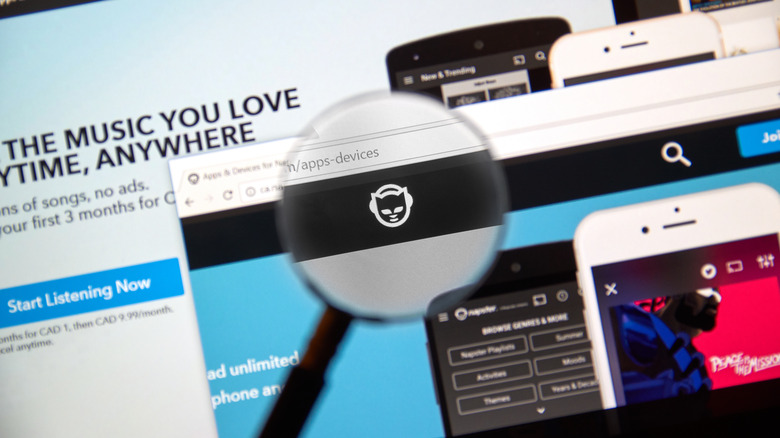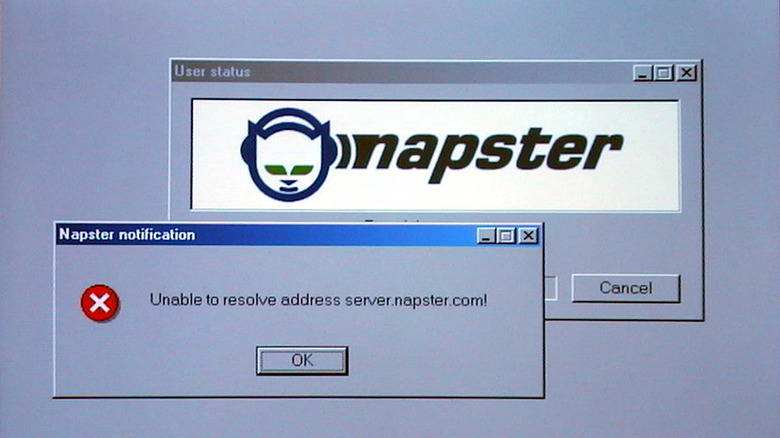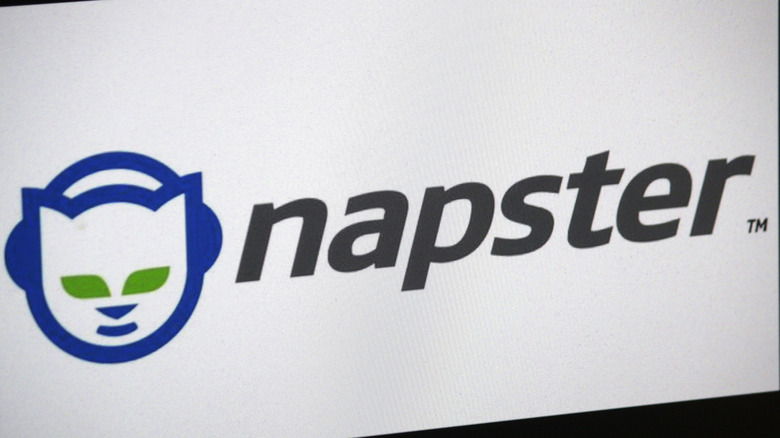Whatever Happened To Napster?
Long before secure subscription-based streaming apps like Spotify or iTunes, the way to get your favorite songs on your computer was easy, but it wasn't exactly legal. Napster was software with an easy-to-understand interface where you could simply search for an artist or song and it would give you results from all the other people who had that song on the peer-to-peer network. From there you could start the download and search for more music. Most people in that era had dial-up Internet, so those downloads could take a long time, but it was still the easiest way to get music.
Napster was originally founded by Sean Parker and Shawn Hanning in 1999 to be a way to share music files (MP3s) using peer-to-peer software. But it didn't take long before artists and record labels got justifiably mad that people downloaded their copyrighted work for free. After several lawsuits, Napster was forced to shut down after just two years in the wild.
While there is a subscription-based service called Napster today, it's a far cry from what it was a couple of decades ago.
Too good to be true
With Napster, to get any music, even random live recordings, all you needed to do was perform a search and start downloading. While it was great for poor college students who wanted to beef up their music library, it wasn't amazing for the artists and record labels who watched as their property was being shared for free. At the time, college campuses complained that network traffic had gone up significantly almost solely because of Napster.
While the students were busy downloading, the Recording Industry Association of America (RIAA) filed a lawsuit almost immediately in 1999 for copyright infringement. As that case wound its way through the courts, the heavy metal band Metallica filed their own lawsuit after it was revealed their unreleased song, "I Disappear" was leaked and was being shared widely on Napster.
In March of 2001, court rulings required Napster to block users from downloading copyrighted music, but Napster saw there was no way to continue the service under the new rules and shut it down in June of 2001 while filing for bankruptcy.
The name lives on
Amazingly Napster still exists today, even if it's only in name. The name has been passed around a lot since 2001 when Sean Parker and Shawn Hanning gave it up after shutting it down. A software company named Roxio used the name for its Pressplay music service, and then Best Buy bought the name and used it for a formerly popular music streaming app called Rhapsody. The name continued to move to even more companies before landing with an investment consortium headed up by Algorand, a blockchain company, and Hivemind, a crypto investment company.
Napster now boasts more than 110 million songs and you can sign up for a subscription for the service at $10.99/month. The service also offers official videos from artists at no extra cost and there are no ads to interrupt your viewing.
Napster may not be the gritty and illegal, yet effective app it was back in 1999, but with a new look, and a lot more music, it could continue to carve out a space in the streaming music landscape.


